I remember my surprise when I realized that many of the behavioral characteristics associated with autism are also associated with hidden hearing loss and vision that blurs or even appears to move (visual processing difficulties). Hidden hearing loss occurs past the cochlear hairs that absorb sounds within the brain’s neural pathways. Hidden hearing loss is also called Central Auditory Processing Deficits (CAPD). Amazingly, researchers are still finding different types of hearing loss. Thus, behavioral characteristics are very important when doctors are unable to find the cause of hearing loss.
You may recognize some of the behavioral characteristics shared within this blog in yourself. Why? Because behaviors associated with hearing loss results in expressive speech struggles, sound intolerance, and listening with comprehension and remembering. I have also often found that the client’s vision appears to blur or lack fixed depth perception are found in all ages with and without a diagnosis of autism.
Thus, I asked myself, “When there is a diagnosis of autism, do you have a high risk of hidden hearing loss, also called Central Auditory Processing Deficits.” Is there also an increased risk of visual processing difficulties? According to researchers Ha, S., Sohn, I. J., Kim, N., Sim, H. J., & Cheon, K. A. (2015), yes. (reference at end)
A High Risk for Sound Intolerance
After careful review of research and years of working with clients, I came to this conclusion.
A high risk for sound intolerance has much more to do with the formation of your hearing system, gut to ear health, and the health of your ear, nose, and throat than a neurodevelopment diagnosis. Head injuries at birth or after birth also affect the strength of your hearing system.
Cheri Moore
Our experiences from birth can prevent us from sharing what we perceive as ‘normal’ experiences. That is why I teach you behaviors to observe and how to observe.
Toddlers, preschoolers, and children with and without autism can experience what I call temporary hearing loss from ear infections or enlarged adenoids. Both of these trap fluid in the middle ear distorting sounds. When chronic, researchers found delays in speech and language development. In fact, there are more than 5 Surprising Reasons that Hearing Loss Begins.
Did you know that a weakness in the hearing system contributes to the development of sound sensitivities or sound intolerance?
Food Allergies & Sensitivities Contribute to Hidden Hearing Loss
There are six foods known to contribute to poor ear health. Client’s food allergy testing often confirmed the presence of food allergies and sensitivities. Inflammation in eustachian tubes create hearing difficulties. Once I shared my gluten and milk free recipes and how to eliminate allergens, I was amazed by how quickly clients with autism and hearing loss behaviors began to express themselves more easily.
The good news is that Auditory Integration Training improves both sound sensitivities and sound tolerance. If your child or loved one is non-verbal, there are activities that prepare them for a hearing evaluation. Also, there are hearing tests that require no response. These tests tell us about the strength and health of the auditory system. Cheri collaborates with your audiologist in hopes that the audiologist will meet your child before the day of testing to lower their anxiety. Most importantly, Cheri request additional hearing tests, some requiring no response, helping us advocate for additional hearing test that assess what the brain does with what was heard, Central Auditory Processing Deficits.
A Typical Hearing Test Can Fail to Identify Hidden Hearing Loss in Those Diagnosed with Autism
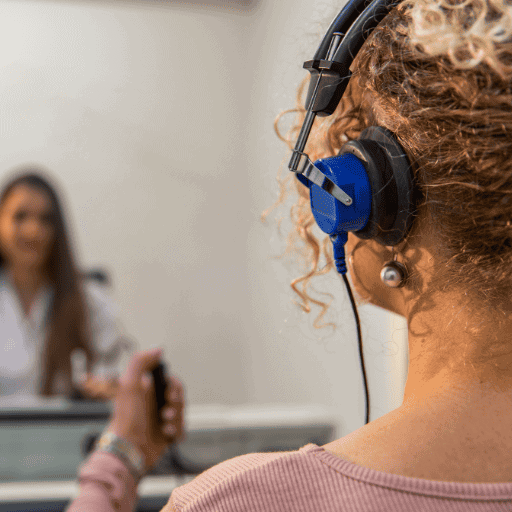
I challenge you to learn about behaviors associated with hearing loss with and without a diagnosis of autism. When there is a lack of speech or expressive speech difficulties with and without the diagnosis of autism, the overall impact on behaviors may surprise you. Imagine the frustration felt by your loved ones, young and old alike.
A Hearing Evaluation for Everyone with Autism
Good news! Hearing evaluations are possible for everyone to complete. Lack of speech is not a barrier to a hearing evaluation. I work with you and your loved one using activities to help you prepare to complete a hearing evaluation with confidence. Even my adult clients benefit from these activities. Knowing what to expect improves the accuracy of your responses during your hearing evaluation and lowers your anxiety.
When needed, we strengthen the hearing system before your hearing test.
Amplification Benefits Those with Autism, Hearing Loss
Amplification benefits those with and without autism. However, I work with you first to strengthen the hearing system in the comfort of your home. When there is significant sound intolerance, your hearing system is weak making it more difficult to adjust to the Roger Focus Amplification.
The Roger Focus Amplification System benefits those with and without severe sound intolerance. I work with you and your audiologist to create an intervention plan to improve sound tolerance. Together we make a plan for you or your child to start wearing the Roger Focus Amplification System. You can improve your ability to listen with comprehension and remember. When looking at the rest of your life with hearing loss and autism, I encourage you to reach out for help one step at a time to learn more about the hearing of your loved one.
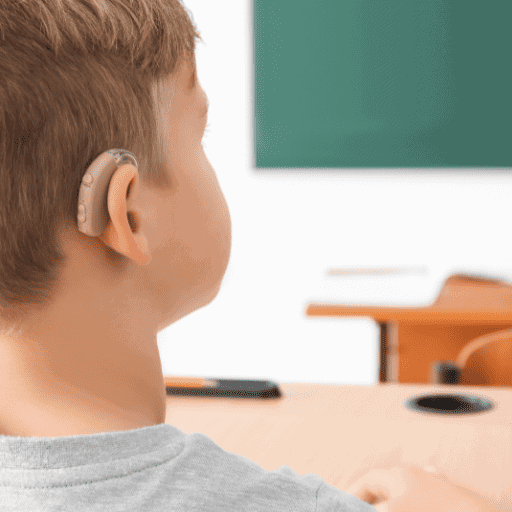
Since hearing loss contributes to the development of sound intolerance, clients benefit from the Roger Focus Amplification or hearing aids, because they suppressed competing background speech and noise. Over time, auditory integration training and receiving strong sound energy stimulation from the Roger Focus Amplification system strengthens hearing pathways within the brain.
After your hearing evaluation, I use test results to develop your ten-day, individualized Auditory Integration Training program. You can improve your tolerance to sounds and strengthens your auditory system. After auditory training, past clients successfully wore their Roger Focus Amplification device or hearing aids.
Once your hearing system is stronger, I work with you to improve auditory processing skills like auditory memory, listening, and expressive speech in the comfort of your home.
Research Findings: Roger Focused FM System Helps Those with Autism and Behavioral Characteristics of Hearing Loss
In 2014, the Hearing Review shared that researchers found benefits when students used a Roger Focused FM System, an amplification system that looks like hearing aids. Students with a diagnosis of autism, ADHD, or a hidden hearing loss like Central Auditory Processing Deficits shared that they:
“Could hear the teacher’s words better,
communicate with their fellow students better, and
were generally more engaged in classroom activities
than without the wireless microphone technology,”
Hidden Hearing Loss Related Behaviors Communicate Needs
Hidden hearing loss related behaviors are a form of communication, non-verbal communication. They tell us about ourselves and others regardless of a diagnosis.
When a child with autism and hidden hearing loss is frustrated by their inability to communicate their needs and wants, it makes sense they need to let it all out. Home is a safe place to emotionally let go after a full day of feeling overstimulation from sounds and working to listen. Together, we explore ways to help them find healthy way of releasing their inner stress.
Ideally, over time as the hearing system strengthens and sound tolerance improves, you see more content and joyful behaviors.
An example of a mild hearing loss coping behavior is repeating what you just heard, echolalia. In preschoolers younger than three years of age, echolalia helps them develop speech. When it is not outgrown, repeating what you just heard helps you check for understanding. It also gives you more time to think before responding. And, repeating what you hear sends stronger sound energy to your brain’s speech center than just listening.
Hearing Loss is NOT Deafness Even with an Autism Diagnosis and Lack of Speech
Do you assume that expressive speech difficulties or even lack of speech are simply due to an autism diagnosis or another diagnosis? Behavioral characteristics of mild hearing loss are clues you need to complete a Moore Auditory-Visual Questionnaire.
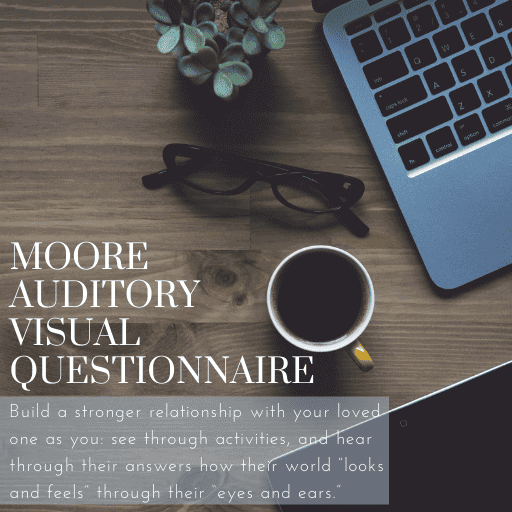
Audiologists and doctors need to understand the intensity and frequency of behaviors. The Moore Auditory-Visual Questionnaire helps us communicate and advocate for a more comprehensive hearing evaluation.
Cheri Moore
Resources Improving Communication
Here are three resource videos about sign language helping reduce your loved one’s frustrations.
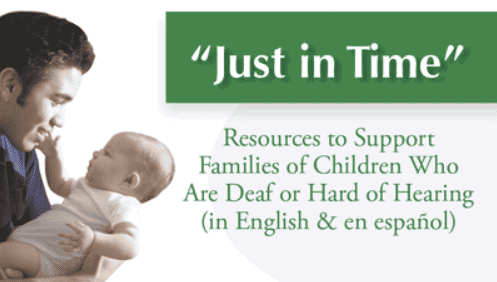

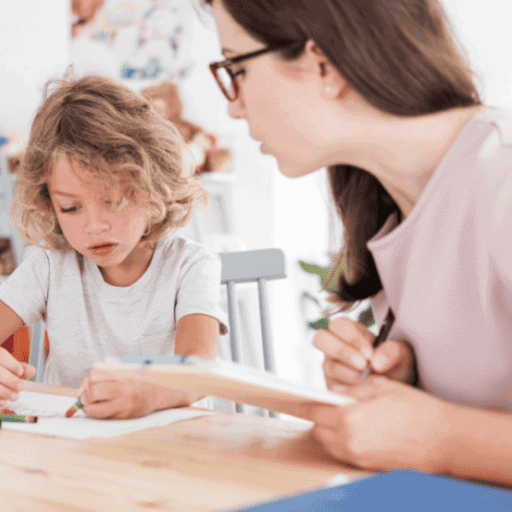





0 Comments